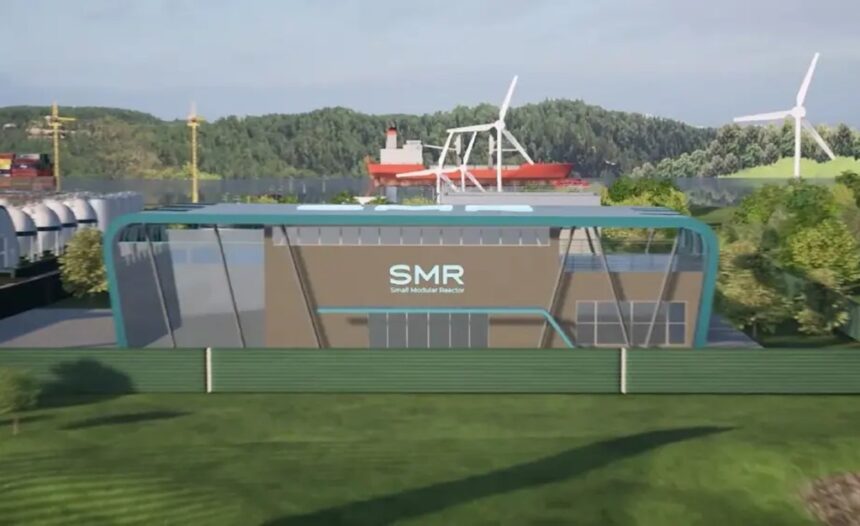Atomic Energy experts are working on a plan to prepare Thailand for nuclear power technology, but implementing the new nuclear energy development plan (PDP), which authorizes the development of small modular reactors (SMR), is being delayed.
According to the International Atomic Energy Agency, an SMR is a type of nuclear power technology that can generate up to 300 megawatts per unit, roughly one-third of the generating capacity of larger, traditional nuclear power reactors.
Though the PDP, which will be in effect from 2025 to 2037, has yet to be officially implemented, the Energy Regulatory Commission and the Office of Atoms for Peace will collaborate on Thailand’s nuclear power and electricity management.
According to the Royal Gazette, the Office of Atoms for Peace will focus on nuclear safety concerns, while the Energy Regulatory Commission will investigate the country’s energy security and grid system. The two agencies will likely discuss legal issues and SMR technology.
According to an energy official who requested anonymity, the government will not move forward with the SMR project until the work of the two agencies takes shape, revealing a clearer direction for nuclear power in the country.
“The two agencies will not inform the public that Thailand intends to develop SMRs. This should be the responsibility of policymakers who will make the final decision on nuclear power,” the official stated.
Under the PDP, two SMRs, each with a capacity of 300MW, will be built and operational by the end of the plan. The Electricity Generating Authority of Thailand (EGAT) could develop and operate the SMRs.
However, according to the official, SMR development may be halted or altered if other new clean fuels and technologies that can generate electricity with a low carbon footprint emerge.
The PDP encourages greater use of clean energy, including nuclear energy.
According to the plan, renewable energy will account for 51% of total fuel consumption by 2037, up from 20% at the end of 2023, while coal and gas will account for 48%, down from nearly 80% in early 2024.
The remaining 1% comes from nuclear energy and new solutions that reduce fossil fuel consumption and save electricity.
The PDP is facing a delay due to disagreements among energy experts despite the plan having already passed a public hearing.

Small Modular Reactor (SMR) Nuclear Energy Technology
According to critics, the proportion of renewable, nuclear energy is insufficient to support the government’s campaign against carbon dioxide emissions, and the PDP’s projection of Thailand’s long-term power demand is too high, resulting in significant investment burdens for the government.
Small modular reactors (SMRs) are a new type of compact and efficient nuclear reactor. Unlike traditional reactors, SMRs are built in factories and transported to sites, shortening construction time.
They typically generate up to 300 megawatts of electricity to power small communities or industrial facilities. Because of their size, they can be deployed in remote areas or regions with limited power requirements.
These reactors include advanced safety features, such as passive cooling systems, which reduce the risk of accidents. SMRs can also be installed in clusters to increase energy production based on demand.
They provide low-carbon nuclear energy, which helps to meet climate goals while also providing flexibility in areas where larger reactors are impractical.
Thailand’s government, as well as private companies around the world, are investing in SMR development to reduce energy costs and reliance on fossil fuels. Their smaller size and modular design may make them more cost-effective and accessible than traditional nuclear plants.
Related News:
Saudi Arabia and Thailand Explore Renewable Energy Cooperation

Geoff Thomas is an award winning journalist known for his sharp insights and no-nonsense reporting style. Over the years he has worked for Reuters and the Canadian Press covering everything from political scandals to human interest stories. He brings a clear and direct approach to his work.














